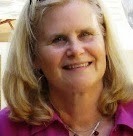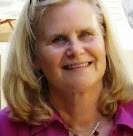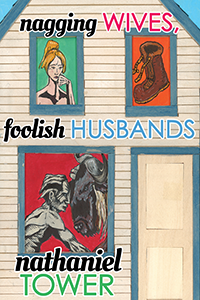Guilie Castillo-Oriard's Blog, page 17
April 24, 2014
#atozchallenge: Uganda, Ukraine, Uruguay, or Union Square?
UgandaExotic (to a Westerner like me), alien, hard to get to. A challenge.
Ukraine The seat of current conflict, a long and bloody history; the sort of place a wanna-be journalist might dream of visiting.
UruguayNew Zealand in South America. A quasi-mythical place or a tax haven (depending on how you found out of its existence).
Union SquareFamiliar and safe, even to those who've never been to San Francisco (or even the U.S.).
So. Which of these places would your 2014 character most likely be found?
 2014: A Year In Stories
2014: A Year In Stories
A twelve-volume anthology published by Pure Slush Books
Uruguay! Because it is the hardest to say. Trudy would probably end up on a cattle farm that's going broke so she has to supplement her income with rodeo shows--but in pidgin Spanish.Or something like that. Sally-Anne Macomber
Union Square.
Mandy Nicol
Luis Villalobos thinks he'd choose Uganda. In truth, and given his career in international tax, chances are small he'd be anywhere but Union Square. Or Uruguay. But highly unlikely he'd cross paths with Trudy in her failing farm; he'd stick to the financial center in Montevideo. Guilie Castillo
Under fences, bushes, shrubs--wherever Pedersen can watch but not be seen.
Susan Tepper
Sally-Anne, Mandy, and Guilie: Eww!
Susan: Yes, well. He's a creep.
And you? Uganda, Ukraine, Uruguay, or Union Square?
~ * ~
Thanks for the visit, and happy last full week of A-to-Z-ing!
Ukraine The seat of current conflict, a long and bloody history; the sort of place a wanna-be journalist might dream of visiting.
UruguayNew Zealand in South America. A quasi-mythical place or a tax haven (depending on how you found out of its existence).
Union SquareFamiliar and safe, even to those who've never been to San Francisco (or even the U.S.).
So. Which of these places would your 2014 character most likely be found?
 2014: A Year In Stories
2014: A Year In StoriesA twelve-volume anthology published by Pure Slush Books
Uruguay! Because it is the hardest to say. Trudy would probably end up on a cattle farm that's going broke so she has to supplement her income with rodeo shows--but in pidgin Spanish.Or something like that. Sally-Anne Macomber
Union Square.
Mandy Nicol
Luis Villalobos thinks he'd choose Uganda. In truth, and given his career in international tax, chances are small he'd be anywhere but Union Square. Or Uruguay. But highly unlikely he'd cross paths with Trudy in her failing farm; he'd stick to the financial center in Montevideo. Guilie Castillo
Under fences, bushes, shrubs--wherever Pedersen can watch but not be seen.
Susan Tepper
Sally-Anne, Mandy, and Guilie: Eww!
Susan: Yes, well. He's a creep.
And you? Uganda, Ukraine, Uruguay, or Union Square?
~ * ~
Thanks for the visit, and happy last full week of A-to-Z-ing!
Published on April 24, 2014 07:36
April 23, 2014
#atozchallenge: Thievery! (And Tawdry Excuses)
I had a post for T. No, really. I did. A most magnificent, witty, and non-verbose gem of a post. And it's gone!
Thievery is what it is. Those trolls--they've graduated into stalking sumptuous posts and stealing them. Yes! Right from my drafts. Just--whoosh, gone.
Whaddaya mean it's not possible?
It's not?
Hmm. Well, then.
Blogger ate my homework T post!
Sincere apologies. The 2014: A Year In Stories series will be back with U.In the meantime, visit the other A-to-Z-ers--some outstanding blogs and bloggersjust waiting to be discovered.
Thievery is what it is. Those trolls--they've graduated into stalking sumptuous posts and stealing them. Yes! Right from my drafts. Just--whoosh, gone.
Whaddaya mean it's not possible?
It's not?
Hmm. Well, then.
Blogger ate my homework T post!
Sincere apologies. The 2014: A Year In Stories series will be back with U.In the meantime, visit the other A-to-Z-ers--some outstanding blogs and bloggersjust waiting to be discovered.
Published on April 23, 2014 17:07
April 21, 2014
#atozchallenge: Setting by @GayDegani

Awarded the 11th Annual Glass Woman Prize for her flash piece, “Something about L.A,” Gay Degani has had other stories nominated for Pushcart consideration. Pomegranate Stories, eight short pieces about mothers and daughters, is available at Amazon, her novel What Came Before is currently serialized online, and her linked stories are being published monthly in Pure Slush's print anthology, 2014-A Year in Stories.
 2014: A Year In Stories
2014: A Year In StoriesA twelve-volume anthology published by Pure Slush Books
 Image by Gay DeganiI have always loved reading stories with a strong sense of place, so when I started writing myself, it didn’t surprise me that place came first to mind.
Image by Gay DeganiI have always loved reading stories with a strong sense of place, so when I started writing myself, it didn’t surprise me that place came first to mind.Where is this going to happen? What does it look like? What time of day? What month? For me, it feels like a natural beginning because place is visual and writing takes place in the mind before it takes place on the computer screen. I need that grounding before I can move forward with the action of the story.
With the "linked stories" project I'm working on for the Pure Slush 2014: A Year in Stories project, the time frame immediately focused me on setting. The stories needed to be told in present tense on a specific day of every month during the year 2014. Weather had to conform to the time of year and the events of each story had to be separated by roughly thirty days. With these parameters in play, the place evolved almost unconsciously as I began considering what I wanted to do.
 Things in my own surroundings began suggesting themselves to me. Place came out of my late afternoon walks in my neighborhood. I noticed how several houses along one street didn't seem to belong in the same neighborhood, yet stood side by side.
Things in my own surroundings began suggesting themselves to me. Place came out of my late afternoon walks in my neighborhood. I noticed how several houses along one street didn't seem to belong in the same neighborhood, yet stood side by side.I live in a community that began developing in the 1890s. The architecture is dictated by past purposes of the streets I walk by: small wooden bungalows that must once have been vacation cabins, mansions hidden behind condominiums, Victorians, Mediterraneans, Craftmans, all lining the same street.
Seeing these homes in the growing gloom of my walks began to stir up scenarios I could incorporate in this series of stories. I followed that impulse and my characters began to take shape.
Like with everything in writing, tapping into that deep, inner part of ourselves and then trusting it will take us where we want to go, pays off.
Has a place ever inspired a story for you? What role does setting play in your writing?
~ * ~
Thank you, Gay, for this fantastic insight into the importance of giving setting its place in storytelling. Thank you, readers, for the visit, and happy A-to-Z-ing!
Published on April 21, 2014 21:30
#atozchallenge: Setting

Awarded the 11th Annual Glass Woman Prize for her flash piece, “Something about L.A,” Gay Degani has had other stories nominated for Pushcart consideration. Pomegranate Stories, eight short pieces about mothers and daughters, is available at Amazon, her novel What Came Before is currently serialized online, and her linked stories are being published monthly in Pure Slush's print anthology, 2014-A Year in Stories.
 2014: A Year In Stories
2014: A Year In StoriesA twelve-volume anthology published by Pure Slush Books
 Image by Gay DeganiI have always loved reading stories with a strong sense of place, so when I started writing myself, it didn’t surprise me that place came first to mind.
Image by Gay DeganiI have always loved reading stories with a strong sense of place, so when I started writing myself, it didn’t surprise me that place came first to mind.Where is this going to happen? What does it look like? What time of day? What month? For me, it feels like a natural beginning because place is visual and writing takes place in the mind before it takes place on the computer screen. I need that grounding before I can move forward with the action of the story.
With the "linked stories" project I'm working on for the Pure Slush 2014: A Year in Stories project, the time frame immediately focused me on setting. The stories needed to be told in present tense on a specific day of every month during the year 2014. Weather had to conform to the time of year and the events of each story had to be separated by roughly thirty days. With these parameters in play, the place evolved almost unconsciously as I began considering what I wanted to do.
 Things in my own surroundings began suggesting themselves to me. Place came out of my late afternoon walks in my neighborhood. I noticed how several houses along one street didn't seem to belong in the same neighborhood, yet stood side by side.
Things in my own surroundings began suggesting themselves to me. Place came out of my late afternoon walks in my neighborhood. I noticed how several houses along one street didn't seem to belong in the same neighborhood, yet stood side by side.I live in a community that began developing in the 1890s. The architecture is dictated by past purposes of the streets I walk by: small wooden bungalows that must once have been vacation cabins, mansions hidden behind condominiums, Victorians, Mediterraneans, Craftmans, all lining the same street.
Seeing these homes in the growing gloom of my walks began to stir up scenarios I could incorporate in this series of stories. I followed that impulse and my characters began to take shape.
Like with everything in writing, tapping into that deep, inner part of ourselves and then trusting it will take us where we want to go, pays off.
Has a place ever inspired a story for you? What role does setting play in your writing?
~ * ~
Thank you, Gay, for this fantastic insight into the importance of giving setting its place in storytelling. Thank you, readers, for the visit, and happy A-to-Z-ing!
Published on April 21, 2014 21:30
April 20, 2014
#atozchallenge: Raging Racism (& Other Multi-Dimensionalities)
He turns to go, is already halfway down the stairs when she calls out, "Stay."
He falters a little but keeps going. "Why?"
Desperation chokes her voice. "I love you. Please."
"You don't love me." But he's stopped now.
"I've loved you from the first moment I saw you."
He looks back at her, and in the moonlight she catches the glint of moisture on his lashes. "Do you mean that?"
"I've never meant anything more."
With a smile that lights up his face he runs back up the stairs and, in a whirlwind that takes her breath away, pulls her to him. Just before his lips land on hers, he whispers, "If you only knew how long I've waited to hear you say it."
*sigh*
This is the reason I stopped reading romance--oh, sometime during high school. The characters are flat. Same guy in different costume. Kind of like Tom Cruise movies. (Sorry, Tom. And, in all fairness, no one can play Tom Cruise like you.)
The point being that a large chunk of popular fiction comes with predictable characters (and predictable plots, but that's a subject for another post). I'm not judging; two-dimensional is easier. Maybe even, in some circles, more satisfying. Predictable people in a world that functions the way we want it to: the ultimate escapist fantasy.
 2014: A Year In Stories
2014: A Year In StoriesA twelve-volume anthology published by Pure Slush BooksFor those of us compelled to portray humanity in all its messiness, life isn't so simple. A "real" character is by definition complex, and complexity means flaws. Not small, cute blemishes; big whoppers of flaws. Prejudices. Dishonesty. Lack of morals. Unconventional values. Mental illness. Obsessions.
All of these enrich our characters--but they also make them unsympathetic to the reader. It's a fine line, and it takes a masterful storyteller to walk it successfully. Why, then, do we do it?
 Stephen V. Ramey, AuthorAs with so many things, Stephen V. Ramey has an answer I loved.
Stephen V. Ramey, AuthorAs with so many things, Stephen V. Ramey has an answer I loved.Empathy is built through practice, I believe. Reading encourages us to view the world through another perspective. The more different that perspective, the more clearly we begin to see the world we share with others. That said, it can be quite a feat to tempt a reader into identifying with a negative character. I think this is where the idea of sympathetic flaw comes in. If we can identify with core values of a character even though they behave badly, we can begin to see the wisdom of the saying, "there but for the grace of God, go I." And once we see that differences often spring from a common seed, we can begin to look past We-They and embrace the ethos of us.
~ * ~
Thanks for the visit, and happy A-to-Z-ing!
P.S. -- I'm over at Vidya Sury's marvelous blog today sharing a
Disney-ending, tear-jerker dog rescue story.
Would love to see you there :)
Published on April 20, 2014 21:30
April 19, 2014
#atozchallenge: Quandary

Nothing like a difficult situation to reveal character in fiction (and in real life). A really really difficult situation.
 2014: A Year In Stories
2014: A Year In StoriesA twelve-volume anthology published by Pure Slush Books
Q : Your character is trapped in a dark alley late at night with three men that don't seem to have honorable intentions. What does s/he do? Fight? Flight? Panic and go into hysterics? Sprout a pair of wings and fly away? (No, don't laugh--there's a 2014 character that flies. Sans wings, even.)
STEPHEN V. RAMEY: "As my story cycle opens, Stephen would be nonchalant about such an encounter. He has no money, nothing much of worth, and yet he's not going to let these men intimidate him into giving up what little he does have. He might try to reason. Failing that he would defend himself if necessary, even if it meant a beat down. Once the cancer diagnosis is in, he might actually confront these men, and egg them on. On some level he's looking for a way to prove (to whom?) that he deserves to survive. He's trying to turn his life into a story, with purpose and a resolution."(More on Stephen's 2014 stories.)
SUSAN TEPPER: "What would Pedersen do? He would probably piss his pants. He is mistrustful of grown men. His father beat the crap out of him. In Bellevue, he came out of shock therapy to an orderly fondling his genitals. He likes the small boys so he can always be in control."(More on Susan's 2014 stories.)
MANDY NICOL: "As long as Nadia has her sensible shoes on, she’ll make a run for it."(More on Mandy's 2014 stories.)
GUILIE: Luis Villalobos would probably try to talk his way out of it. (He's a lawyer.) He'd be too busy evaluating possible escape routes, gauging the attackers' level of distraction, keeping his facial expressions in check, to feel fear. But once it was over, assuming he got away safe and sound, he'd probably curl up somewhere where no one could see or hear him and bawl his eyes out.(More on my 2014 stories? An interview and an audio version of the first story.)
~ * ~
What would your character do? What about favorite characters--say, Atticus Finch, or Odysseus? Walter White? Florentino Ariza (from Love In The Time of Cholera)? Oh, and his beloved Fermina Daza? Of the two, I'm pretty sure she'd be the kick-ass.
And you? What would you do? What does that say about you?
~ * ~
Thank you for visiting on this beautiful April Saturday, and happy A-to-Z-ing!
Published on April 19, 2014 06:30
April 18, 2014
#atozchallenge: Pinterest (or The Discovery of A Digital Bulletin Board To Share With Readers)
 Today you're in for a treat--via fellow 2014 author, the extraordinary Gay Degani.
Today you're in for a treat--via fellow 2014 author, the extraordinary Gay Degani.Awarded the 11th Annual Glass Woman Prize for her flash piece, “Something about L.A,” Gay Degani has had other stories nominated for Pushcart consideration. Pomegranate Stories, eight short pieces about mothers and daughters, is available at Amazon, her novel What Came Before is currently serialized online, and her linked stories are being published monthly in Pure Slush's print anthology, 2014-A Year in Stories .
 I never understood
Pinterest
, at least not as a place for me to actually join. I never surf the net looking for shoes or stainless steel appliances. I'm not planning a wedding anytime in the near future.
I never understood
Pinterest
, at least not as a place for me to actually join. I never surf the net looking for shoes or stainless steel appliances. I'm not planning a wedding anytime in the near future. Then someone—I can’t remember who—blurted out the words “digital bulletin board” and something clicked.Above my writing desk I have a bulletin board with pictures of 1920’s houses and the gates to Indian Wells private communities as well as movie stars from the past and the present, both white and African-Americans. This is my inspiration board for my suspense novel, What Came Before , released earlier this month.
[more about Gay's novel for W day.]Two thoughts collided: What if I could share my REAL-LIFE bulletin board with my future readers—digitally! So I signed up, put together not only a board for the novel, but for another project I’ve been involved in, Pure Slush's 2014: A Year in Stories.
 Sybil's bungalowBecause the task of 2014 is for me (and the other thirty writers) to create twelve linked stories, one for each month of the year, in present tense, as if happens on that exact day in 2014, it meant juggling many characters, settings, and story-lines, and researching details so that my Old Road stories would have authenticity.
Sybil's bungalowBecause the task of 2014 is for me (and the other thirty writers) to create twelve linked stories, one for each month of the year, in present tense, as if happens on that exact day in 2014, it meant juggling many characters, settings, and story-lines, and researching details so that my Old Road stories would have authenticity.  The Riolito canyon floorSybil, my landlady, showed up on the page in a silk robe and I kind of knew what it would be like, but I typed “silk robes” into Google and came up with dozens to look at. I did this for many of the details I needed. The board is open to readers to see how their imagination lines up with mine.
The Riolito canyon floorSybil, my landlady, showed up on the page in a silk robe and I kind of knew what it would be like, but I typed “silk robes” into Google and came up with dozens to look at. I did this for many of the details I needed. The board is open to readers to see how their imagination lines up with mine. Visit The Old Road board at Pinterest to see what’s inspired me in writing these stories, and check out the What Came Before’s board too.~ * ~
Want to know more about Gay's 2014 story cycle ? The next installment is happening tomorrow, April 19th. I, personally, can't wait.
Thank you, Gay, for sharing your Pinterest experience. I was also a late-comer to it, and I'm not sure I've got the hang of it yet, but one thing's for sure--it's addictive.
Gay isn't the only 2014 author with a Pinterest board to illustrate and inspire the story cycle; Mandy Nicol has one, and Sally-Anne Macomber. And me. If you have time to check them out, we'd love to hear how you feel about seeing the images that inspired the 2014 stories. Do they enhance the experience--or do they clash with your own visualizations?
~ * ~
Thanks for the visit, and happy (Easter) A-to-Z-ing!
Published on April 18, 2014 09:36
April 17, 2014
#atozchallenge: One Night Only
I've nothing against having sex for the sake of sex; it might even be (speaking purely hypothetically here) a healthy pursuit. How do you feel about one-night stands? Have you ever had one? Would you? (And if you did, would you admit it?)
 2014: A Year In Stories
2014: A Year In Stories
A twelve-volume anthology published by Pure Slush Books
But are one-nighters really about just sex? Or is that another gender-biased subject--men being allowed (or perceived to be allowed) more sexual freedom than women, as Barb commented on yesterday's post)?
 Want a taste of January?In Carmine, by John Wentworth Chapin (2014 January, Vol. 1), Charles picks up Tony (or, rather, Maybe-Tony) at a bar, and they go back to his place. Instead of sex, however, they end up talking all night.
Want a taste of January?In Carmine, by John Wentworth Chapin (2014 January, Vol. 1), Charles picks up Tony (or, rather, Maybe-Tony) at a bar, and they go back to his place. Instead of sex, however, they end up talking all night.
In Michael Webb's 2014 story cycle, Mark Hamilton tries to have a one night stand once, and considers it one other time. Athlete families are notorious for infidelity, and it is not uncommon to hear about "understandings" between couples that allow for dalliances, as long as no unwanted consequences, either paternal or microbial, taint the family unit. Mark is of two minds about it--he loves his wife, but it is hard to be away from her for so long, and especially when their phone calls are concerned with family business and not anything intimate. He feels entitled, sometimes, as the breadwinner, to get what he wants when he wants, but he almost always feels too guilty to follow through with it.
Stephen, from Stephen V. Ramey's cycle, grew up believing in free love and disconnection between sex and emotion. Only he was too insecure to ever initiate or even participate in such things. He was one of those guys who goes to a strip bar and tries to meet the stripper's eyes. He would never join a club that would have him as a member. Since marrying Anne, he has not even considered an outside affair. Whatever else you say about Stephen, he is loyal. Even as his marriage is dissolving beneath his feet, he turns a blind eye to outside opportunities for love and sex. Which is why Rose is such a surprise to him, mainly because he's never considered the possibility that Anne might be jealous of another woman. In his thinking, Anne has been putting up with him out of pity for the last several years. He can't imagine that she sees anything in him worth her love.
And of her character Nadia, Mandy Nicol says, "One night stand? Given the opportunity and a few strong drinks Nadia would certainly be up for one, or two. A bit of fun with no commitment or responsibility? Sounds perfect for her. But she'd better do it out of town or there will be talk."
 Memoria de Mis Putas TristesThere's that gender thing again. Why does the girl worry about "talk" when the guys don't?
Memoria de Mis Putas TristesThere's that gender thing again. Why does the girl worry about "talk" when the guys don't?
Gabriel García Márquez left this world today, and left it--unlike 99.99% of the population--a much better place than he found it. In honor of that, and of the sheer marvelousness of him, we'll give him the last word:
“Sex is the consolation when love ends.”
― Gabriel García Márquez, Memoria de Mis Putas Tristes
Why is it that we so often confuse the two?
~ * ~
Thank you for the visit, and happy A-to-Z-ing!
 2014: A Year In Stories
2014: A Year In StoriesA twelve-volume anthology published by Pure Slush Books
But are one-nighters really about just sex? Or is that another gender-biased subject--men being allowed (or perceived to be allowed) more sexual freedom than women, as Barb commented on yesterday's post)?
 Want a taste of January?In Carmine, by John Wentworth Chapin (2014 January, Vol. 1), Charles picks up Tony (or, rather, Maybe-Tony) at a bar, and they go back to his place. Instead of sex, however, they end up talking all night.
Want a taste of January?In Carmine, by John Wentworth Chapin (2014 January, Vol. 1), Charles picks up Tony (or, rather, Maybe-Tony) at a bar, and they go back to his place. Instead of sex, however, they end up talking all night.In Michael Webb's 2014 story cycle, Mark Hamilton tries to have a one night stand once, and considers it one other time. Athlete families are notorious for infidelity, and it is not uncommon to hear about "understandings" between couples that allow for dalliances, as long as no unwanted consequences, either paternal or microbial, taint the family unit. Mark is of two minds about it--he loves his wife, but it is hard to be away from her for so long, and especially when their phone calls are concerned with family business and not anything intimate. He feels entitled, sometimes, as the breadwinner, to get what he wants when he wants, but he almost always feels too guilty to follow through with it.
Stephen, from Stephen V. Ramey's cycle, grew up believing in free love and disconnection between sex and emotion. Only he was too insecure to ever initiate or even participate in such things. He was one of those guys who goes to a strip bar and tries to meet the stripper's eyes. He would never join a club that would have him as a member. Since marrying Anne, he has not even considered an outside affair. Whatever else you say about Stephen, he is loyal. Even as his marriage is dissolving beneath his feet, he turns a blind eye to outside opportunities for love and sex. Which is why Rose is such a surprise to him, mainly because he's never considered the possibility that Anne might be jealous of another woman. In his thinking, Anne has been putting up with him out of pity for the last several years. He can't imagine that she sees anything in him worth her love.
And of her character Nadia, Mandy Nicol says, "One night stand? Given the opportunity and a few strong drinks Nadia would certainly be up for one, or two. A bit of fun with no commitment or responsibility? Sounds perfect for her. But she'd better do it out of town or there will be talk."
 Memoria de Mis Putas TristesThere's that gender thing again. Why does the girl worry about "talk" when the guys don't?
Memoria de Mis Putas TristesThere's that gender thing again. Why does the girl worry about "talk" when the guys don't?Gabriel García Márquez left this world today, and left it--unlike 99.99% of the population--a much better place than he found it. In honor of that, and of the sheer marvelousness of him, we'll give him the last word:
“Sex is the consolation when love ends.”
― Gabriel García Márquez, Memoria de Mis Putas Tristes
Why is it that we so often confuse the two?
~ * ~
Thank you for the visit, and happy A-to-Z-ing!
Published on April 17, 2014 15:48
April 16, 2014
#atozchallenge: Nagging Wives (& Foolish Husbands)
“Lady Middleton resigned herself... Contenting herself with merely giving her husband a gentle reprimand on the subject, five or six times every day.” ― Jane Austen, Sense and Sensibility
“You have got a sharp tongue, haven't you honey? You'll have to watch it or you'll go to a lonely spinster's grave.” ― Margaret Way, Bauhinia Junction
Why is it that nagging has a feminine connotation? And not the most positive of females, either: a "lonely spinster," a shrew. Do men never nag?
“It requires the feminine temperament to repeat the same thing three times with unabated zest.” ― W. Somerset MaughamWell, yeah, but... He was a man.
 2014: A Year In Stories
2014: A Year In StoriesA twelve-volume anthology published by Pure Slush Books
So is nagging how men define "the repetition of unpalatable truths" (Edith Clara Summerskill)? Or is that just feminist wishful thinking? Is there such a thing as objective, non-gender-slandering nagging?
Michael Webb doesn't think so.
Mark Hamilton would probably characterize his wife as nagging, but I don't think he is correct. I don't like the word across the board. It is far and away applied to women instead of men, which makes me suspicious right off the bat. And in my experience, it is a slur a man applies when he is being asked to engage in so called "women's work", the drudgery of running a household that is critical to make any family work properly.
This is deeply unfair.
In any grouping of people, certain tasks have to be performed- laundry, dishes, cooking, cleaning, shopping, home repair, etc. To remind another member of the household to do one of these things isn't fun, but it's not fair to call it "nagging".
On the other hand, Stephen (Stephen V. Ramey's fictional pseudo-alter ego--ambivalent enough, yes?) says:
Some people see Anne as a nagging wife because she confronts Stephen about his shortcomings in a direct manner. From Stephen's point of view this is certainly correct. He knows what he's supposed to have done, that he's supposed to contribute to the marriage. Telling him again won't do anything but aggravate. Anne must realize how ineffective nagging is, yet she persists. Why? I suspect Dr. Phil is right and she must get something out of the process or she would stop.
For Anne, I think it's a matter of relieving her own tension. As a goal-driven person it must be frustrating to have to rely on someone else in order to achieve goals that are important to her. Rather than feel powerless and possibly sink into depression, she keeps pushing, and lashes out from time to time. The routine also reinforces the household pecking order, with Anne as the dominant force who achieves goals and Stephen as the beta male. Nothing would get done around here without Anne. That it's true, does not make it any easier on Stephen. No one wants to be treated like a child.
("Then stop acting like one," Anne would say.)
And then there's Nate Tower , whose 2014 story cycle is keeping us all in morbid, if horrified, hilarity. (Listen to Nate's reading of his January, February, and March stories and find out why.)
 His short story collection,
Nagging Wives, Foolish Husbands
, released last month by Martian Lit, should have some answers about this nag-or-no-nag. One would think.
His short story collection,
Nagging Wives, Foolish Husbands
, released last month by Martian Lit, should have some answers about this nag-or-no-nag. One would think.Okay, I would think.
Which is why I was immensely frustrated to find this post on his blog: 24 Reasons That Don't Explain Why I Titled My Short Story Collection 'Nagging Wives, Foolish Husbands' . Frustration which lasted all of five sentences, when I read this:
Originally accepted almost two years ago, [the collection] was later retroactively rejected because the publisher feared it might be taken as misogynistic.
That sounded promising. But then I got to this part:
First, I need to confess that I am mostly not an idiot when it comes to being a husband. Yes, I have some flaws. But I don’t leave the toilet seat up, I put the dishes away, and I don’t sit on the couch and order my woman to fetch me a beer while I watch the big game with my buddies. Not that there is anything wrong with men who do. Well, maybe there’s a little wrong.
And then--then--I find out his wife is anything but a Nagging Wife.
1. She was okay with the fact that I titled my collection of weird short fiction Nagging Wives, Foolish Husbands. She’s also very supportive of my writing career, unlike Mark Nipple’s wife who won’t support his desire to be in a Sex Pistols knockoff band. Not only is she supportive, but she doesn’t nag at all.
By the end of the list (there's 24 points; read them all here) I was wondering, along with everyone else:
“Well, if your wife is so perfect, what exactly inspired you to write these stories and put them together in a collection to call extra attention to the fact that wives nag and husbands are idiots?”
You--and I--will have to read the collection to find out.
What constitutes nagging in your world? Is it a predominantly feminine thing? Can--do--men nag? What about other instances of nagging that don't involve wives/husbands? Do you agree with Stephen that there's something in it for the nagger? Or are you with Michael in that nagging is in the eye of the naggee?
And, for extra credit, do you nag? Under what (extraordinary) circumstances?
~ * ~
Thanks for visiting (and sorry for the late post--it's been a crazy week. Month.)Happy A-to-Z-ing!(Love you all. No, really.)
Published on April 16, 2014 14:54
April 14, 2014
#atozchallenge: Morgana Malone and The Mysteries of Matt Potter's Masterpiece(s)
 2014: A Year In Stories
2014: A Year In StoriesA twelve-volume anthology published by Pure Slush Books
Today you're in for a special treat. Susan Tepper , who's not just one of the 31 2014ers but has also published five books of poetry and fiction, including The Merrill Diaries (Pure Slush Books, 2013) and the Pulitzer-nominated What May Have Been (Cervena Barva Press, 2010), is interviewing Matt Potter --editor extraordinaire, brilliant author, mastermind of ground-breaking projects, the reason all of us 2014ers are here to begin with--about his story cycle in 2014: A Year In Stories .
 Susan TepperSusan Tepper: Your January 2014 story, Morgana Malone and the Case of the Mysterious Flood (has a Nancy Drew ring to it, doesn't it?) introduces the theme of water. In general, do you enjoy partaking in the rituals of water: the bath, oceans, lakes, the 8 oz bottle?
Susan TepperSusan Tepper: Your January 2014 story, Morgana Malone and the Case of the Mysterious Flood (has a Nancy Drew ring to it, doesn't it?) introduces the theme of water. In general, do you enjoy partaking in the rituals of water: the bath, oceans, lakes, the 8 oz bottle?Matt Potter: I deliberately chose a title like that... I would never read stories like that (never did as a kid either: I thought they were silly, even then!) but I did want a Trixie Belden / Hardy Boys / Nancy Drew-sounding title for Morgana Malone...ST: Sort of every girl’s dream. I wanted to be Nancy Drew, and I sort of still do.
[GUILIE: Me too!]
MP: Actually, there was a series of books published from 1941 to 1947 by the Whitman Publishing Company, and this is a quote from Wikipedia so I don’t know what the original source is, so I assume the publisher itself, but the books feature plots where “the heroine has the same name and appearance as the famous actress but has no connection ... it is as though the famous actress has stepped into an alternate reality in which she is an ordinary person.”
I always thought this was hilarious and all their titles were similar: Ann Rutherford and the Key to Nightmare Hall (1942), Betty Grable and the House with the Iron Shutters (1943), Judy Garland and the Hoodoo Costume (1945), etc etc.
All my stories in 2014 have (or will have) titles like that: Morgana Malone and the Miracle of St. Francis Xavier, Morgana Malone and the Mystery of the Manna from Heaven, Morgana Malone and the Mystery of the Family Trust. All are humorous references to the action in their stories.ST: My, but you can digress.. the water???
MP: Ah, yes. Well, I always have a shower and never a bath, and it has to be quite hot (not just warm) for me to go swimming. But it’s the ocean or sea for me (I loathe swimming in lakes and rivers) and there must be sand at the bottom: no mud or stones or moss or squelch. Yuk! We are spoiled with beaches in Australia. Sand sand sand and nothing else! My favourite drinks are sauvignon blanc, beer on a really hot day, and most often water, plain water.
 Matt Potter
Matt PotterAuthor, Editor, All-Around Great HumanST: Your answer, "We are spoiled with beaches in Australia..." was the defining moment in your psyche, I believe, for what opens the Morgan stories saga: water... ever present... and water is biblical. You have created Morgana as a TRIPLE THREAT: brains, beauty and inquisitive nature. BUT!!!— you added vulnerability. I'm quite interested to see more of why her ex-husband has 'his hold' over her still. He was her psychiatrist, which adds an extra layer of psychological intrigue to the saga of Morgana Malone.
MP: I would say rather than biblical, water is natal. In a geographic context, Australia is a country and a continent and an island, we are surrounded by water and if we have to go anywhere outside Australia we have to go over the water. For Australians international is overseas. (As it is with most of the 7 countries where English is the main European language. But here more so.)
The beach was part of my childhood – summer holidays at the beach, one or two weeks just before the school year started, and for us kids it was quite idyllic, though I am unsure if I thought quite the same at the time – and we had older relatives (now dead) who lived one street from the beach and we would visit them often – but it’s not really part of my life now … though we do holiday on the coast towards the end of summer, beginning of autumn, for one week every year. (And there’s some incredible statistic about 90% of Australians living within 100km of the beach or something like that. See, all that Outback nonsense is just that, mostly a myth.)ST: OK, natal. It is your story.
MP: Actually, what opens the first story and thus the saga is art. But both water and art are emotional, no? Art features much more in my life on a conscious level. (The look of things is very important to me. BUT, something looking good is not enough, there MUST be meaning beyond the surface, otherwise there is no point, then it’s just marketing and Life according to Barbie™.)
Bad psychiatrists and bad therapists feature quite often in my stories. I had a counsellor once who was wonderful and helped me a lot – the only time I ever sought such help – but I’ve always been a talker and a thinker and an analyser and people who are blind to their own faults and issues are (1) very funny for me but also, in real life (2) damned annoying. Perhaps it is no coincidence in my day job I am surrounded by counsellors, their offices are all around mine. (I actually quite like that environment, though the political correctness can be frustrating.) But counselling is about getting to the emotional truth and learning and discovering ways to cope with life and relationships and feelings. Most of the characters I write about are heavily flawed so of course, some kind of help is needed!ST: So why does Morgana put up with her ex?
MP: Grigor? Well, clearly she doesn’t want to, but he is very persistent and plays on her weak spot, her passivity. She lets things happen. But Grigor is, basically, a shit, and very unethical. Morgana meets other people through the course of 2014 who are not great for her either. The trick for her is: how can I recognize these patterns and change them?ST: Never easy.
MP: I think she recognizes the patterns but she hasn’t moved to the next step to changing her behavior.
I don’t see Morgana as beautiful – she would not think of herself that way at all – or even brainy, but what she does is survive. She has street smarts in a lower middle class way. I am about to write a story with Morgana and her mother and it could be interesting, how her mother sees her. Grigor was Morgana’s psychiatrist because he used her as a guinea pig PLUS he needed the money. He was probably still her psychiatrist after their divorce too. See, he really is a shit.
OK, you can stop me now …Susan Tepper sfloris@att.netwww.susantepper.com
~ * ~
Thank you, Susan and Matt, for the insight--and the chuckles. You make me laugh without even trying. And Matt, Morgana is a centerpiece creation.
Thank you all for visiting, and happy A-to-Z-ing!
Published on April 14, 2014 21:30



